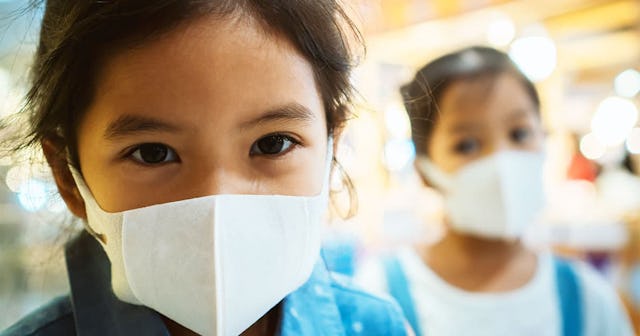New Study Finds Link Between Air Pollution And Mental Health Disorders In Children

Spikes in air pollution have an immediate impact on mental health in children– including anxiety, depression and suicidal thoughts
Air pollution has been linked to a variety of health complications, such as diminished lung function, asthma and even lung disease. As children’s lungs are still forming, it is no surprise that they are the most effected by harmful particulate matter. However, new research is revealing that air pollution isn’t just compromising our children’s physical health, but their mental health as well. According to a new study published on Wednesday in the Environmental Health Perspectives journal, short-term exposure to high ambient air pollution is responsible for increased mental health disorders, including anxiety and depression.
Previous evidence had linked harmful particulate matter with an increase in psychiatric disorders in adults, so researchers wanted to see if they had the same impact on children. They examined psychiatric patient visits at the Cincinnati Children’s Hospital Medical Center over a period of five years. They chose to zero in on the fine particulate matter PM2.5, which can lodge into lungs and subsequently into other organs and the bloodstream. When a patient checked into the hospital, they attempted to trace the matter back to the residential area where they lived. What they discovered is that when there were increases in PM2.5, the number of psychiatric visits would increase over the next few days.
Even scarier? The air pollution had an immediate effect on children. The first day the pollution spiked, the hospital saw an influx of visits related to schizophrenia. Days later, there would be a spike in patients with suicidal thoughts and adjustment disorder.
“Collectively, these studies contribute to the growing body of evidence that exposure to air pollution during early life and childhood may contribute to depression, anxiety, and other mental health problems in adolescence,” said Patrick Ryan, a lead author, in a press statement.
Sadly, socioeconomics was also found to a be a factor. Kids who lived in disadvantaged areas and weren’t as privileged fared much worse when it came to the psychiatric effects of pollution.
“The fact that children living in high poverty neighborhoods experienced greater health effects of air pollution could mean that pollutant and neighborhood stressors can have synergistic effects on psychiatric symptom severity and frequency,” study co-author Cole Brokamp, PhD, explained.
While so many people (including the President of the United States) like to mock Greta Thunberg for her impassioned campaign against climate change inaction, this study is further proof that her efforts are much needed. Earlier this week, the activist and 15 others sued five countries for climate violations, claiming they are violating their rights as children.
“People are suffering. People are dying. Entire ecosystems are collapsing,” Thunberg said during her speech. “We are in the beginning of a mass extinction. And all you can talk about is money and fairy tales of eternal economic growth. How dare you!”
Whether or not you are a parent, we seriously hope the findings of this latest study have you foaming at the mouth. While we are seriously failing our children and future generations in so many ways, the least we can do is give them clean air to breathe.